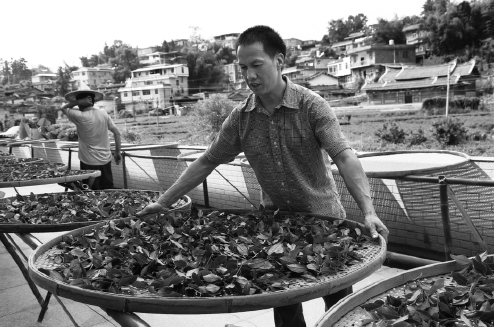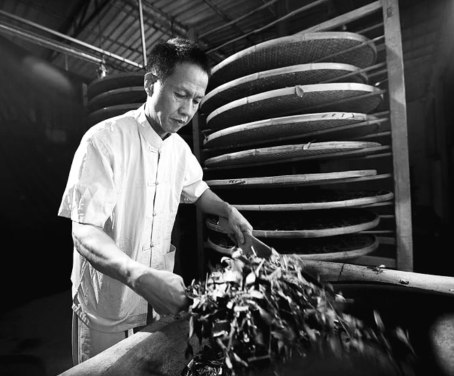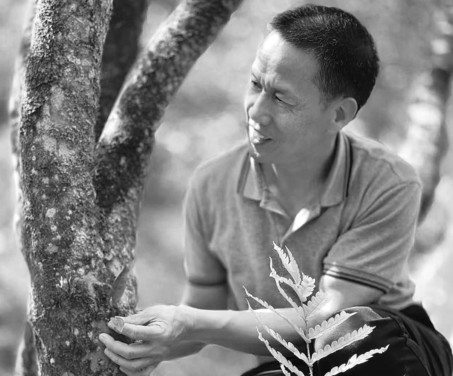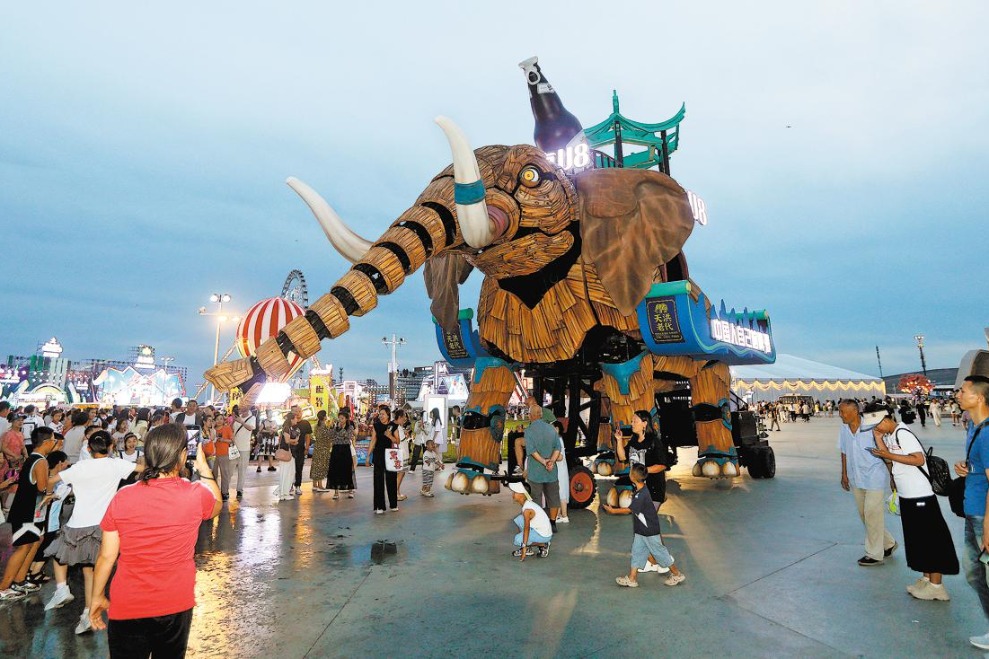Infusing confidence in his craft
Tieguanyin tea expert not only helps to promote the traditional brew but also works hard, so that young people can find their feet in the business and improve skills, Wang Ru reports.

For 58-year-old Chen Lianggu, tea is a magical elixir. It's a belief that stems from his teenage years, that tea can help cure illness. When he was a youngster, while he was busy reaping rice on the farm, he began to suffer from heatstroke. Feeling uncomfortable, he went back home and explained the situation to his mother.
She found some tea, roasted it with salt, and then added it to boiling water. About half an hour after drinking that cup of tea, Chen felt fully recovered.
Chen admits that it's hard to tell whether the tea played a major role in his recovery, but the incident certainly planted a tea-loving seed in Chen's heart.
Now a provincial-level inheritor of making Tieguanyin, a variety of oolong tea (a half-fermented type of tea in China) in Gande town, Anxi county, Fujian province, Chen has been devoted to the tea-making craft for more than two decades.
He has won a number of prizes for his skills as a craftsman and his tea has won many prizes at competitions, as well as having been sold to many places in China and overseas.
At first, processing tea did not seem any more profitable than farming, and the people of Anxi didn't rush to get involved, despite the area's ideal geographical conditions to plant tea trees, and many locals growing them.
Both of Chen's parents were good at tea production. As farmers, they had a heavy workload all year round, but they still processed tea in their free time. According to Chen, in his mother's mind, tea leaves hidden in deep mountains were precious, and every year in slack seasons, she hiked in the mountains to pick some, and made tea by herself. She often wrapped up the tea she made in a cloth bag, hung it under a beam in the kitchen, and took some to drink or use as a medicine when necessary.
After dropping out of middle school because of poverty, Chen began to work as both a carpenter and farmer, with his carpentry welcomed by the locals.
In 2000, when the popularity of Tieguanyin tea started to blossom, Anxi's reputation as a major production area of the tea also grew. That urged Chen to turn his attention to the production of the tea full-time, establishing his own tea garden and brand.
Taking the craft he inherited from his family elders, he also improved his skills by learning from others. He still remembers one day, when his wife took the tea he made to the market, few people were interested in buying it. While Chen was upset, he didn't give up, and went to the market the next day to consult other stall owners.
He was reminded to pay attention to weather and temperature when making tea, and that enlightened him. "I began to realize that when making tea, a good mastery of the craft is far from enough, as nature plays a significant role," says Chen.
He explains that natural factors like the type and altitude of the mountain tea trees, soil condition, weather and climate when picking tea leaves and processing the tea all exert an influence on the quality of the finished product.
"Many people prefer good weather, so does tea. When the weather is not that ideal, we must adjust many details, like the speed at which yaoqing (tossing tea leaves) — a procedure in making oolong tea — is done. The technique for making such adjustments comes from experience," says Chen.
"That's very difficult. You cannot make good tea with just one or two years of experience. It's a process that requires you to learn continuously. You can improve a little bit every year by learning from the mistakes you made in the past," he adds.
According to Chen, making oolong tea requires a dozen procedures, and during the process, attention must be paid to many details. If one is ignored, the whole process will be a failure.
By learning from the suggestions of others, he has come to realize the value of communication. "Although the craft has been left by our elder generations, good tea cannot be made by solitary learning. Discussion with other tea makers is required to make improvements," says Chen.
Based on that philosophy, in 2013, Chen established a master's studio in Anxi where people interested in making the tea can communicate with each other and polish their skills by learning from those who are well-versed in the craft.
According to Chen Jinquan, a student of Chen Lianggu, "Masters generously impart their skills to us at the studio, and I have benefited tremendously. In the past, the tea I made was of variable quality, and the best I could sell it for was around 100 yuan ($14.8) per kilogram. After improving my skills at the studio, the quality of my tea is now consistent and it sells for more than 200 yuan per kg."
The studio has also come to be viewed as a demonstration center of the tea-making craft in Gande, attracting visitors to watch how people make tea and experience the process by themselves. According to Chen Lianggu, in the first year after its establishment, nearly 5,000 people visited the studio.
Since many local people started to make tea, in 2011, Chen Lianggu also established a tea cooperative to standardize production, build brands and sell tea. Now, more than 200 local households have joined the cooperative.
Recalling his years making tea, Chen Lianggu says he has enjoyed the process very much. "I really love tea, and have worked hard to ensure people drink good tea. People can only do a good job when they are devoted to it and, it's in this way that a product gains recognition from others," he says.



Today's Top News
- Restoring truth is the least we can do to serve history
- Israeli airstrikes hit Gaza amid worsening humanitarian crisis
- Book on Confucianism launched in Brussels
- Right track for China-ROK ties lauded
- Nursery rooms help fathers take part in parenting duties with more ease
- Typhoon Kajiki brings heavy rain in Hainan






























